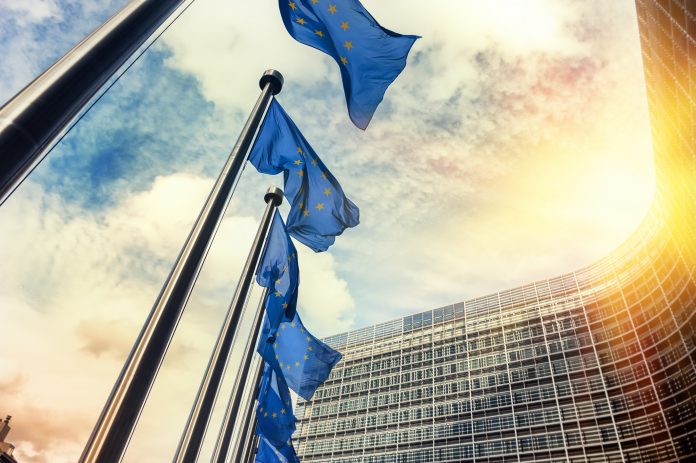Open Access Government charts some of the key policies tasked with Dubravka Šuica, Vice-President and European Commissioner for Democracy and Demography
Dubravka Šuica, Vice-President and European Commissioner for Democracy and Demography leads the European Commission’s work on deliberative democracy and the Conference on the Future of Europe, to give individuals a voice as to what the European Union (EU) does and how it is run. Vice- President Šuica is also responsible for statistical mapping concerning the impact of demographic change, in rural areas, for example. Identifying support needed, like access to services for those most vulnerable to demographic change or infrastructure investment are clearly important in this Commissioner’s remit, so let’s find out more! (1)
The demographic transition
On 30th September 2021, Vice-President Šuica gave a speech via videoconference for the Open Ceremony of the “Smartagrifood Summit” and near the start of this, she remarks that her work focuses on the democratic and demographic issues affecting the lives of individuals. It’s fascinating to see that she mentioned rural areas, which face the most profound effects of the demographic transition experienced in Europe. She went on to elaborate on this aspect of Commission policy.
“Rural areas are key to achieving our sustainability goals. They provide us with food, sustainable raw materials, carbon sinks, water and biodiversity. Indeed, sustainable food production and the diversification of economic activities are vital for rural areas and for improving the competitiveness and development of agri-food companies. We are committed to addressing the challenges and opportunities of rural areas and the innovative businesses on which they depend.” (2)
Inclusion in democracy
“Inclusion is important in our democracy,” Vice- President Šuica comments when speaking at an event that supports local authorities on the road towards climate neutrality (Slovenia and Croatia), organised by the Covenant of Mayors Europe Office and FEDARENE. Inclusion is one of the key principles of the Conference on the Future of Europe, as are transparency and openness, Vice-President Šuica comments, before providing further detail.
“The Conference is part of our response to make our democracy fit for the future. These days, citizens react immediately to events, posting comments or retweeting. We cannot expect citizens to wait 4 or 5 years to express their views in elections. Citizens want to have a greater say, to help build our common future, the Future of Europe. We need a creative re-imagining of democracy in the European Union with the courage to deliver differently and to empower citizens.” (3)
From day one in her role, Vice-President Šuica has invested all her energy into citizen engagement, inclusion and empowerment. “Citizen participation at all levels of policy-making is part of our response to making our democracy more responsive and more resilient,” she comments during a speech via videoconference at the 19th European Meeting of People Experiencing Poverty, EAPN on 25th November 2021. (4)
European citizens’ trust in democracy
On the International Day of Democracy, 14th September 2021, a joint statement was made by the High Representative/Vice-President Josep Borrell and Vice-President Šuica. It is interesting to note how the statement opened with the comment that if you care about issues such as jobs, the economy, climate change, jobs, or racial and social justice, your vote will only count and your voice will only be heard if you reside in a democracy. The joint statement stresses that the trust of European citizens in a democracy should and cannot ever be taken for granted. “The COVID-19 pandemic has tested citizens’ confidence in the democratic institutions designed to serve them, while the threats and violence against journalists and political polarisation have increased,” the statement continues.
In these challenging times, the European Union will stay an outspoken and steadfast supporter of democracy, the rule of law worldwide and within the EU plus human rights. Certainly, collective efforts are required, together with a fresh view of supporting democracy that delivers for citizens and such a task, starts at home. The efforts required include defending “the ability of free and pluralistic media to provide timely access to reliable and accurate information, and fight disinformation” and “promoting free and fair elections, ensuring rule of law and media freedom are building blocks to create a space where every citizen feels free and empowered,” the statement tells us. (5)
Delivering a speech during the Political Session: “The future of Europe and our European values” of the Eurocities Conference & Annual General Meeting on 5th November 2021, Vice-President Šuica stresses that bringing citizens into the centre of policy-making in the EU “strengthens our representative democracy”. (6) “Each and every citizen has the possibility to engage in a truly European discussion on the issues that are important for them,” Vice-President Šuica notes in October 2021 when delivering welcoming remarks at the Conference on the Future of Europe Plenary. (7)
Demography & democracy working together
Finally, it’s also worth highlighting that the areas of demography and democracy are cross-cutting and interact together, Vice-President Šuica notes during a keynote speech via videoconference for the event: “The Conference on the Future of Europe and challenges and opportunities of ageing in Europe” on 29th November 2021. Certainly, Vice-President Šuica believes we can learn much from the interlinkages, which is an excellent place to conclude our analysis of demography and democracy, with the additional angle of ageing included.
“From the moment we are born, we are ageing. It is essential that we foster understanding, solidarity and responsibility, but also knowledge sharing between generations. By building a constructive narrative around demographic change, and ageing in particular, we are reinforcing our communities and our democracy, making them fit for the future.” (8)








